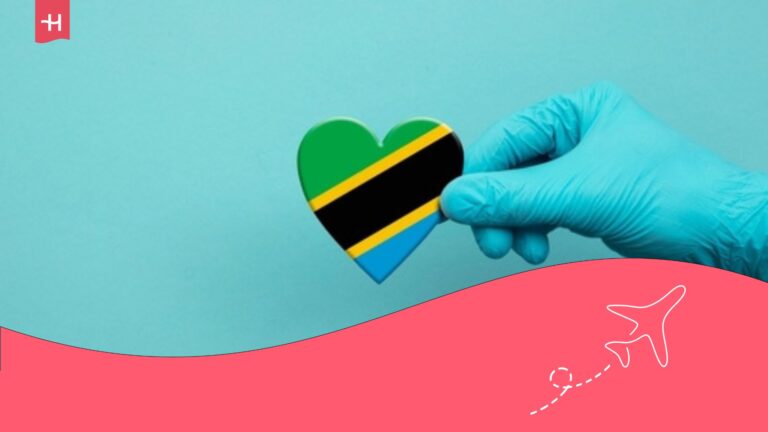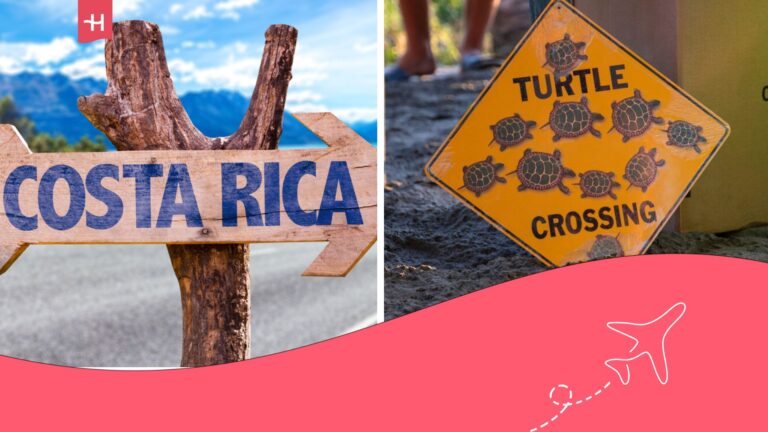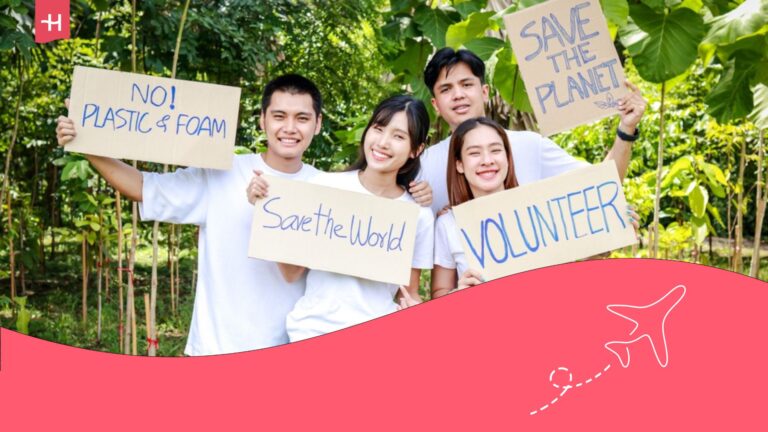Volunteering in Australia: Find the best option for you
Do you dream of volunteering in Australia? In this article you will find all the information you need to prepare and live the experience.
If Australia is on your bucket list but you’re looking for something more meaningful than just sightseeing, you’re in the right place. Whether it’s helping protect koalas or supporting social initiatives in Indigenous communities, volunteering in Australia gives you the chance to make a real impact while having an unforgettable, life-changing experience.
Join us as we explore some of the most impactful volunteer programs in Australia, what they involve, what you’ll need to participate, the real costs behind the experience, and how it can benefit you both personally and professionally. Australia isn’t just about stunning beaches, modern cities, or unique wildlife. It’s also a country where environmental action, social inclusion, and respect for Indigenous cultures are driving real change. And you could be part of that movement.
Keep reading because if you are motivated by the idea of helping, learning and growing, Australia is waiting for you with open arms.
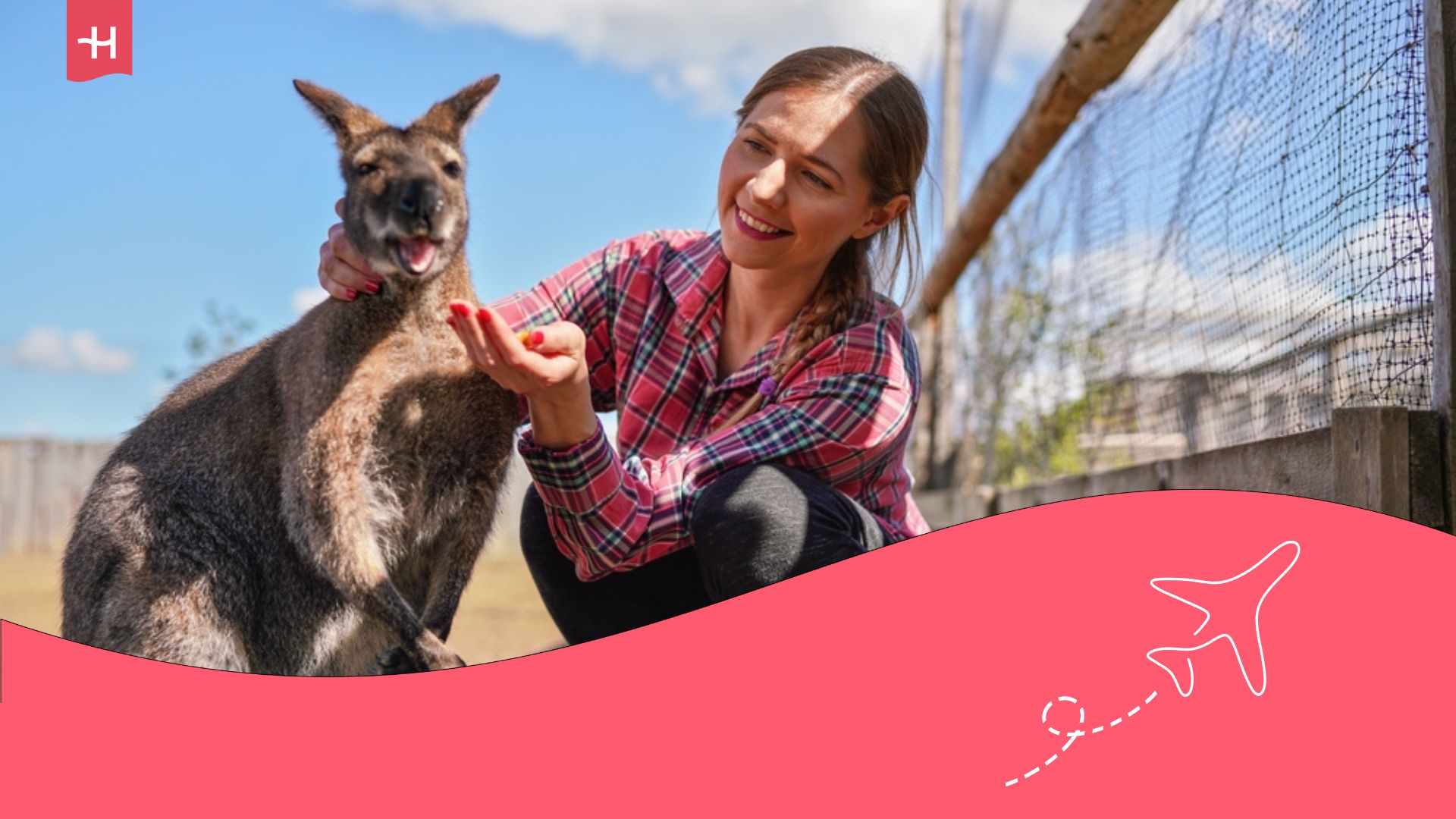
Why volunteer in Australia?
When you think of volunteering abroad, Australia probably isn’t the first country that comes to mind. Chances are, you’re imagining places like Kenya or Tanzania, or somewhere in Southeast Asia like Thailand. That’s because we often associate Australia with high living standards, strong economies, excellent healthcare.
But the truth is, even though Australia ranks among the most developed countries in the world, it still faces real social, environmental, and cultural challenges that call for ongoing support. From devastating bushfires to marginalized Indigenous communities and the protection of endangered native species, there’s a real need for passionate people to step up and get involved.
Here are two valuable reasons why Australia is a great destination for volunteering:
1- Because its biodiversity is at risk
Australia is home to over 500 animal species found nowhere else on Earth—many of which are under threat due to climate change, bushfires, drought, and urban expansion. By joining an environmental volunteer program, you’ll be part of hands-on efforts to protect koalas, kangaroos, flying foxes, sea turtles, and native birdlife. You might also help restore habitats, manage invasive species, and track wildlife populations. It’s the kind of work that calls for energy, patience, and a genuine passion for the natural world.
2- Because its native peoples are still fighting for equality
Aboriginal communities in Australia hold one of the world’s oldest living cultures, with over 60,000 years of history. Yet many still face systemic inequalities in areas like education, healthcare, employment, and representation. That’s why some volunteer programs focus on supporting initiatives that foster intercultural education, community empowerment, care for ancestral land (known as Country), and the passing down of traditional knowledge.
What are the personal and professional benefits of volunteering in Australia?
No matter where you go, volunteering always leaves a mark. Because giving often means receiving too: a smile, a moment of connection, a sense of purpose that stays with you. And sometimes, the impact of your efforts is visible right away. That’s why volunteering in Australia might end up being even more rewarding for you than you ever imagined.
What benefits are we talking about? We summarize them below:
1- You will experience an authentic and deep cultural exchange
Unlike in some destinations where volunteering can feel more symbolic than impactful, in Australia you’ll be working side by side with professionals, local communities, and NGOs that truly value your contribution. You’ll collaborate with Australian volunteers and people from all over the world, building friendships and global networks that often last long after the experience ends.
You’ll also get a front-row seat to Australia’s rich Aboriginal heritage, along with the country’s mix of accents, cuisines, values, and ways of life. As a volunteer you’ll live it from the inside. And that kind of experience has a way of shifting your perspective.
2- You will be part of real projects with direct impact
Whether you’re planting native trees in Queensland’s dry forests or helping rescue wildlife affected by fires in New South Wales, your volunteer work makes a real, visible impact. Australia truly values volunteer efforts, and your contribution becomes part of long-term projects with measurable outcomes.
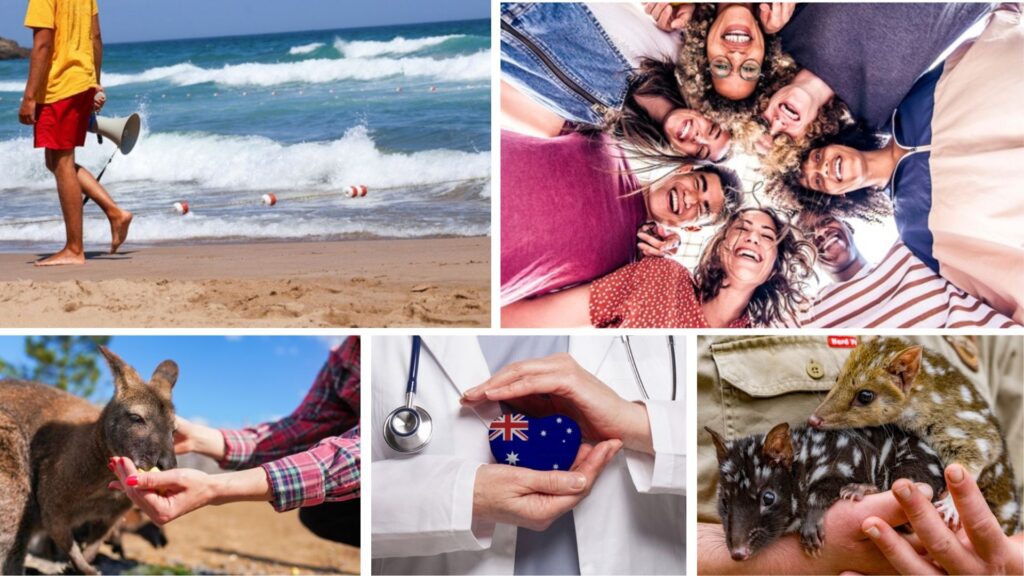
3- You will develop valuable professional skills
Volunteering is also a chance for personal growth and professional development. Depending on the project, you might gain experience in areas like environmental conservation, sustainable tourism, community education, or nonprofit management. Along the way, you’ll build skills like adaptability, problem-solving, teamwork, and cross-cultural communication.
All this adds up to a lot if you are studying or want to work in international cooperation, environment or the third sector.
4- You will save on accommodation and food
Most programs, especially those focused on the environment or rural areas, include accommodation and some meals. This means you can spend several weeks in Australia without the typical tourist expenses, staying in unique places with basic comforts taken care of. That’s definitely a big plus, since Australia is usually known as an expensive destination for travelers.
5- You will change the way you see the world
When you spend time helping restore an area damaged by fire, or learn about the deep spiritual connection Indigenous peoples have with the land, something shifts within you. Volunteering in Australia leaves you with new values, questions, and memories that stay with you long after your trip is over.
Ultimately, Australia is a place that challenges you on a human, environmental, and social level. Volunteering there lets you experience the country in a genuine, engaged, and mindful way.
What are the requirements for volunteering in Australia?
Besides having the willingness and readiness to help, volunteering in Australia requires meeting certain conditions, like obtaining a visa and meeting the minimum age for the programs. The good news is that Australia has a well-established system for welcoming international volunteers, the paperwork is straightforward, and the programs are usually well-run. Here’s a rundown of everything you need to know before applying:
1. Appropriate visa for volunteering
You cannot enter as a tourist and volunteer in Australia, you must apply for a visa that allows unpaid work. The most common are:
- Working Holiday Visa (Working Holiday – Subclass 417 or 462): It’s open to young people between 18 and 30 years old (35 in some states) and lets you work and study for up to a year. It’s especially popular among those volunteering in environmental projects or on farms.
- Visitor Visa – Subclass 600 (for volunteer purposes): This visa is for short stays and unpaid activities. When you apply, you need to state that you’ll be volunteering and provide an official invitation letter from the NGO.
- Special Program Visa – Subclass 408: Exclusive for officially approved programs, i.e., it applies if you are going to participate in projects registered with the government.
Ultimately, the most appropriate visa depends on the type of program and your country of origin. Therefore, it is best to always consult with the NGO or agency before applying.
2- Vaccinations and health requirements
There are no mandatory vaccines to enter Australia, but it’s recommended to be up to date on hepatitis A and B, tetanus and diphtheria, and the MMR vaccine (measles, mumps, and rubella). COVID-19 shots aren’t required, though some organizations might ask for the full vaccination. If you’re volunteering in rural areas, it’s a good idea to bring a personal first aid kit, insect repellent, and sunscreen.
3- International medical insurance
Healthcare in Australia can be pricey for non-residents, so having medical insurance is a must. Your policy should cover emergencies, hospital stays, medical evacuation, moderate physical activities like farm work, and any pre-existing conditions you might have. To find the right plan, check out our guide on the best health insurance options for foreigners in Australia.
4- Age and level of education
Most programs welcome volunteers starting at 18 years old, though some allow minors to participate if they’re accompanied by an adult or part of an organized group. As for education, you typically don’t need specialized training unless you’re joining a technical project like biology, medicine, or education.
What really matters is having a solid grasp of English, especially in rural areas where translators aren’t available. Some NGOs provide short online training before your trip, so it’s a good idea to take advantage of that.
5- Additional documentation
Besides your visa and health insurance, you’ll need a valid passport (with at least six months’ validity), a police clearance certificate translated into English, an application form including a motivation letter, and proof that you have enough funds to cover your stay.
6- Connectivity during your experience
Australia offers great internet access overall, but in remote or natural areas, WiFi can be spotty or slow. To keep in touch with your coordinator, NGO, and loved ones, getting a monthly data plan from Holafly is a smart move. Their unlimited data lets you use your phone without constantly worrying about limits or bad connections. Just activate it and forget about roaming fees or weak WiFi.
Important: If you are a frequent traveler and want to stay connected without worrying about expensive roaming or looking for a new SIM at every destination, Holafly’s subscription plans are for you. With a single eSIM, enjoy internet in more than 170 countries for a fixed price and no surprises on your bill. Travel without limits and connect easily and securely! 🚀🌍

What are the best volunteer programs to do in Australia?
Australia is one of the best-prepared destinations for international volunteers. Many local and global organizations run well-structured programs that include accommodation and clear goals. Whether you want to get involved in environmental, social, or educational projects, you’ll definitely find an opportunity that matches your values and motivations.
Below, we share with you four outstanding programs:
1. Conservation Volunteers Australia – Environmental Restoration in Protected Areas
Conservation Volunteers Australia (CVA) is one of the country’s largest NGOs. They focus mainly on ecosystem restoration, biodiversity, and climate action, running projects in national parks, coastal areas, wetlands, and nature reserves. It’s a perfect fit for anyone looking for hands-on, outdoor work that makes a real difference.
As a volunteer, you’ll get involved in activities like planting native trees, tracking wildlife, managing invasive species, and helping restore habitats damaged by fires or droughts.
| Feature | Detail |
| Requirements | Over 18 years old, intermediate English, good physical condition |
| Duration | From one week |
| Includes | Accommodation, transfers, tools, permanent support |
| Price | From $420 per week |
| Popular programs | – Restoration on the Victorian coast – Koala protection in Queensland – Reforestation in New South Wales |
2. WWOOF Australia – Volunteering on organic farms
WWOOF (Willing Workers On Organic Farms) links volunteers with hosts across the country who practice organic farming. In exchange for helping out a few hours a day (usually four to six), you get food, a place to stay, and a chance to dive into rural life, permaculture, and sustainable farming methods.
What will you do? Anything to do with life on a farm, from milking goats, composting and planting vegetables to helping in bio-construction workshops.
| Feature | Detail |
| Requirements | Over 18 years old, WWOOF membership ($26), functional English |
| Duration | From one week to six months |
| Includes | Meals, accommodation, basic insurance (depending on host) |
| Price | Annual membership. Volunteering with no additional fee |
| Popular programs | – Biodynamic farms – Organic wine production – Permaculture centers in Tasmania |
3. Oceans 2 Earth – Wildlife rescue
Oceans 2 Earth Volunteers focuses on protecting and rehabilitating Australia’s wildlife. Their project in New South Wales involves rescuing injured and orphaned animals, caring for them during recovery, and eventually releasing them back into their natural habitats.
As a volunteer, you’ll assist with feeding the animals, cleaning their habitats, supporting veterinary monitoring, and helping with their physical rehabilitation. You may also get involved in restoration efforts for properties affected by wildfires.
| Feature | Detail |
| Requirements | Over 16 years old, physically fit, fluent in English |
| Duration | From one to four weeks |
| Includes | Accommodation, four meals per day, training, materials, basic insurance, transfers from airport/bus station/train to project |
| Price | From $800 per week |
| Popular programs | – Koala rescue – Rehabilitation of kangaroos – Seabird sanctuary |
4- Australian Volunteers International – School support in indigenous communities
Australian Volunteers International (AVI) is a well-established organization with over 70 years of experience, working closely with local communities in Australia and Southeast Asia. One of their most respected programs takes place in northern territories and rural Queensland, focusing on improving basic education and promoting social inclusion for Indigenous children and youth.
The volunteer work centers on supporting primary schools and community centers by helping with extracurricular activities like art, sports, and reading. Volunteers also provide emotional support to children facing learning challenges and help run cultural programs aimed at preserving Indigenous languages and traditions. This program is perfect for those looking for meaningful cultural exchanges and who have a passion for social work or education.
| Feature | Detail |
| Requirements | Over 21 years old, experience with children or related studies, advanced English |
| Duration | From four weeks |
| Includes | Pre-training, accommodation, internal transfers, local assistance |
| Price | From $1,180 for four weeks |
| Popular programs | – School tutoring in remote areas – Art and indigenous language workshops – Support for families in situations of exclusion |
5. GoEco Australia – Great Barrier Reef Conservation
GoEco runs a volunteer program at the Great Barrier Reef, the world’s largest coral system and home to hundreds of endangered species. Keep in mind that participating fully requires Open Water and Advanced Open Water diving certifications. If you already have them, you can join the full program at a discounted rate. If not, the program includes certification courses on days two and three so you can get qualified while you’re there.
In addition to the work on the reef, you will also be involved in sea turtle rehabilitation, tank cleaning and beach cleaning.
| Feature | Detail |
| Requirements | Over 18 years old, basic English, no asthma, diabetes or serious respiratory conditions. Complete PADI medical form |
| Duration | 11 days, 12 nights |
| Includes | Shared accommodation, meals, activities, 24/7 assistance |
| Price | $2,750 for the full program. |
Types of volunteer projects in Australia
Australia is a country as diverse as the challenges it faces. Depending on the type of volunteer work you choose, your experience will be completely different. Whether you’re helping care for an injured koala or leading a workshop in an Indigenous community, here’s a look at the main types of projects you can get involved with.
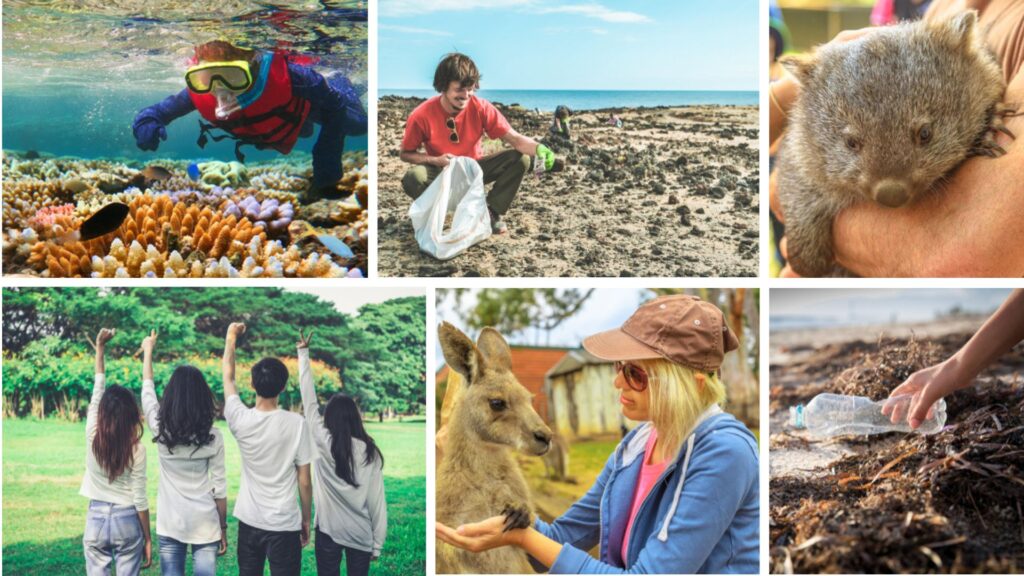
1- Wildlife conservation
Australia is home to unique wildlife that’s also quite vulnerable. Wildfires, urban growth, and climate change are putting the habitats of countless species at risk. If you have a deep passion for animals, volunteering in this area can be an unforgettable experience.
You’ll get involved in all sorts of tasks—rescuing and caring for koalas, kangaroos, and native birds, feeding and cleaning animals that are hurt or orphaned, helping release them safely back into the wild, and taking part in tracking and monitoring local wildlife.
Where? The most notable areas for this type of project are Queensland, Victoria and the Northern Territory.
2- Environmental restoration
Beyond working with animals, many volunteer programs focus on restoring Australia’s landscapes damaged by drought, deforestation, or wildfires. You’ll be involved in activities like planting native trees and plants, removing invasive species, cleaning up beaches, trails, and reserves, and helping build eco-friendly trails and educational signage.
Where? Mainly in Byron Bay, Tasmania and New South Wales.
3. Education and activities with children
In remote areas and Indigenous communities, access to quality education remains a challenge. That’s why many programs look for volunteers to provide support in various ways. If this kind of work interests you, be ready to teach subjects like English, reading, math, art, sports, or music, offer emotional support and educational games, and assist at community centers for children.
Where? Northern Territory, rural Queensland and Western Australia.
4. Projects with indigenous communities
Australia is home to over 250 Indigenous nations. Some NGOs collaborate closely with these communities to help preserve their culture, enhance education, and promote local development.
In this kind of work, you could be running art and cultural workshops focused on Indigenous traditions, helping preserve stories by recording them digitally, supporting initiatives that empower women, and participating in environmental or land care projects.
Where? In areas such as Arnhem Land, Kimberley, Alice Springs.
5. Volunteering on organic farms
Another popular option in Australia is volunteering on organic farms. These projects are perfect for those who want to dive into sustainable living, permaculture, and mindful eating.
Typical activities in these projects include planting, watering, and harvesting crops, as well as building with natural materials like clay. You’ll also learn how to make homemade goods like bread and preserves, and help take care of farm animals.
Where? Organic farms in Tasmania, Victoria and rural South Australia welcome volunteers all year round.
6. Logistical support and digital communication
Interested in using your digital skills to support a nonprofit? That’s definitely an option in Australia. Some organizations look for tech-savvy volunteers to assist with awareness campaigns, communications, or streamlining their internal operations.
Your tasks might involve creating graphic or video content for social campaigns, managing social media posts, documenting field projects, and handling databases or website maintenance.
Where? In urban NGO headquarters in Melbourne, Brisbane or Sydney.
How much does it cost to volunteer in Australia?
Australia isn’t a cheap place to visit, but volunteering there can offer a meaningful experience without the high tourist prices. Just keep in mind that some basic expenses might not be covered by the programs.
Here are the main expenses involved in this type of experience, along with estimated costs:
| Type of expense | Approximate cost (USD) | Is it included in the programs? |
| Roundtrip airfare (depends on destination of origin) | $1,200-2,000 | No. Arranged by the volunteer. |
| Accommodation | $0-250 per week | Yes, in most programs it is covered. |
| Meals | $0-150 per week | Partially or fully included (depending on program). |
| Program fee | $600-2,200 for two to four weeks | Yes. Covers registration, logistics and donation to NGO. |
| International medical insurance | $40-90 per month | Mandatory, but at volunteer’s expense. |
| Local transportation | $20-100 per week (or more if rural) | In many cases it is included. |
| Volunteer visa | $150-300 | Arranged online prior to travel. |
| Vaccinations and preventive health | $0-150 | Not mandatory, but recommended. |
| Previous certificates/documents | $10-40 | Depends on program and country of origin. |
Besides saving on accommodation and meals (which most programs cover), volunteering in Australia lets you cut costs on activities and tours that tourists usually have to pay for. Many projects offer free cultural outings and excursions, giving you the chance to explore the country without breaking the bank.
On the other hand, by joining an already organized network, finding accommodation, transportation or contacts on your own are tasks you don’t have to worry about.
Frequently asked questions about volunteering opportunities in Australia
Volunteering isn’t paid, but you still need the proper visa to participate legally. Usually, people use the Working Holiday Visa if they’re under 30 or 35, or the Visitor Visa subclass 600 if the program gives you an official invitation. If you’re unsure which one applies, it’s a good idea to ask the organization before you apply.
It really depends on the project. For general environmental work or farm tasks, no formal education is usually needed. But if you’ll be working with kids, in healthcare, or with Indigenous communities, some organizations might ask for prior experience, basic training, or a higher level of English.
Absolutely. Most programs are conducted in English, so having at least an intermediate level is essential to communicate, follow instructions, and get involved. In rural areas, there are no translators, so the better your English, the more rewarding your experience will be.
It really depends on the project. You might stay in shared volunteer houses, farm accommodations, NGO-run facilities, or even with host families. Whatever the setup, the places are always safe, simple, and suited to the environment where you’ll be working.
Absolutely! Many volunteers arrive a week or two early—or stay on after their program—to explore spots like the Great Barrier Reef, Uluru, or Byron Bay’s coastline. And if your visa allows, you can even mix and match projects across different parts of the country.























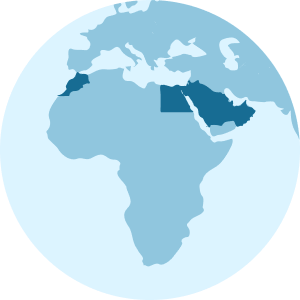






















 Pay
Pay  Language
Language  Currency
Currency 


















 No results found
No results found



